‘Doctor Who’ rewatch: Season one ranked
Christopher Eccleston's brief time in the TARDIS is, well, fantastic
Welcome to Girl Culture, the newsletter where Caroline Siede examines pop culture, feminism, and more. Learn more about Girl Culture’s mission here
From Joan Winston co-organizing the first Star Trek convention in 1972 to Mary Shelley inventing the entire genre back in 1818, sci-fi has always been both loved by and driven by women. And if you were on Tumblr from 2012-2015, you know that Doctor Who is a veritable cornerstone of modern female sci-fi fandom.
Indeed, Russell T Davies’ 2005 revival of the classic British sci-fi series rooted itself far more in the perspective of 19-year-old shop girl Rose Tyler (Billie Piper) than the 900-year-old time traveling alien Doctor (Christopher Eccleston) who takes her under his wing. And in light of RTD’s return to the franchise this fall, I decided to revisit the series that’s been incredibly important to me, both personally and professionally, ever since I first fell in love with it during a post-college binge-watch about 11 years ago. (No, I wasn’t immune to the power of early 2010s Tumblr either.)
Though I have fond memories of Eccleston’s one and only season as the Doctor, I don’t think I’ve revisited the entirety of season one in order since that first binge. And this rewatch kind of blew me away. In my mind, this was the season where Doctor Who was still figuring itself out. But while that’s certainly true when it comes to its special effects (and some of its comedic sensibilities), there’s so much about this season that emerges fully formed and perfectly paced too. In fact, I’d probably put it up there with seasons five and nine as the best seasons in NuWho history.
What’s always drawn me to RTD’s writing is his ability to almost instantaneously flesh out his characters so that they feel fully drawn and lovably flawed – whether they’re onscreen for one episode or a dozen. Add to that great arcs for both leads, the slow-burn build-up of the larger Doctor Who mythology, and the absolutely fantastic chemistry between Piper and Eccleston, and you’ve got one hell of a debut season.
In fact, I found it a lot easier to single out the season’s handful of weaker episodes than to rank its best. And that means there’s plenty of wiggle room within my three-tiered system. So please weigh-in down in the comments on where you think I got it wrong and right. I’m more than up for the debate!
LOWER TIER
10. “The Long Game” (season one, episode seven)
I’d consider “The Long Game” the one truly bad episode of season one. Though its critique of media manipulation and human complacency is still timely enough, it’s tied up in a dystopian sci-fi package that’s too off-putting to be effective. From its strange use of Simon Pegg to the oddly paced central mystery, this space station-set Information Age cautionary tale just never quite gets off the ground.
9. “Aliens of London” / “World War Three” (season one, episodes four & five)
There’s something about contemporary-set Doctor Who stories that tends to bring out the worst in RTD’s comedic sensibilities (and this era’s special effects). And “Aliens of London” / “World War Three” is no exception. The farting Slitheen jokes aren’t particularly funny, and there’s an air of fatphobia to the whole thing that’s rather unpleasant. Still, on a rewatch, I was surprised to find more to like than I expected as these episodes flesh out the continuity of Rose’s home life, deliver a decently plotted alien invasion mystery, and – mostly importantly – introduce Harriet Jones, MP.
8. “The Unquiet Dead” (season one, episode three)
When it comes to Doctor Who’s canon of famous historical figures, Simon Callow’s Charles Dickens is an all-timer. But other than that, “The Unquiet Dead” is a relatively rote outing. It’s not bad exactly – especially not when Eve Myles is onscreen – but the plotting is a little unsatisfactory and the emotions a bit underdeveloped. And while you need some filler episodes to round out a season, this one doesn’t particularly stand out amongst Doctor Who’s many subsequent ghost stories.
SOLID TIER
7. “Boom Town” (season one, episode eleven)
If there’s one reason to cut “Aliens of London” / “World War Three” some slack, it’s that it almost improbably led to this incredibly compelling return for guest star Annette Badland. Though not technically a bottle episode, “Boom Town” mines its tension from dialogue-driven character work and moral complexity rather than whiz bang sci-fi spectacle. And that makes for an intriguing change of pace, as the Doctor debates whether to send a villain off to face the death penalty. Admittedly, I didn’t find this hour quite as strong on a rewatch as I remember it being on my first viewing. It’s a bit disappointing that the episode ultimately winds up taking the sci-fi easy way out by transforming its anti-heroine into… an egg. Still, “Boom Town” is an appreciably unique, character-driven penultimate hour before the season’s explosive finale.
6. “Rose” (season one, episode one)
Some shows take a while to find themselves, and while that’s true for RTD’s Who, it’s also remarkable how much of the show is here from the get-go too: Rose’s ingenuity, the Doctor’s complex moral code, Jackie’s entire character. Other than the goofy Plastic Mickey subplot, this pilot is a pretty perfect introduction to RTD’s reboot. It’s a mystery box anchored by an immediately winning young lead and an undercurrent of melancholy that Davis does better than just about anyone. And it elegantly lays out the basics of everything you need to know about the Doctor, while still leaving tons of questions to tease out over the course of the season (and the series). Add in Piper and Eccleston’s charming odd couple chemistry and a propulsive energy that papers over the low-budget mid-aughts aesthetic, and it’s no wonder I was ready to binge-watch the entire series after this episode.
5. “The End of the World” (season one, episode two)
There’s maybe never been a better encapsulation of Doctor Who than the cold open of this episode, in which Rose’s giddy excitement about traveling to the future turns to something much darker as the Doctor takes her to watch the Earth explode in the year five billion. It’s a perfect summation of the Doctor/companion dynamic – with his alienness clashing with her humanity. And I’ve always loved the subtext of how recklessly the Doctor decides to take Rose to this particular moment in time; as if it’s the only way he can think to bond with her after the devastating loss he experienced during the Time War. Like a lot of RTD Who, the balance of comedy and drama isn’t quite right here (the “Toxic” needledrop is a bit much), but Rose and the Doctor are well served, Jade is a standout companion-who-might-have-been, and you can’t beat “Moisturize me.”
4. “Bad Wolf” / “The Parting of the Ways” (season one, episodes twelve & thirteen)
Has there ever been more of a 2005 time capsule than this reality TV spoofing two-part finale? The dystopian riff on Big Brother, The Weakest Link, and What Not to Wear sits somewhere between charmingly retro and gratingly dated (not to mention very Hunger Games-esque). But it works well enough to fill the time before the real fireworks factory: A Dalek battle royale, the payoff for all those Bad Wolf teases, and the Ninth Doctor’s emotional regeneration scene. It’s an impressively cohesive end to RTD’s most cohesive season. And though it’s bittersweet to say goodbye to Eccleston after just 13 episodes in the role, I also think there’s something poignant about the way this season slowly teaches its audience about the broader Doctor Who mythology only to end with one last major Time Lord lesson. Change is an inevitable part of Doctor Who, and Eccleston’s short but impactful run means the audience (and Rose) gets to learn that lesson early. I’m not sure the rest of RTD’s Who would have worked nearly as well without the foundation that he, Piper, and Eccleston laid together this season. And you really couldn’t ask for a better send-off.
TOP TIER
3. “The Empty Child” / ”The Doctor Dances” (season one, episodes nine & ten)
While I’ve got some mixed feelings about Steven Moffat’s tenure as Doctor Who showrunner, there’s no doubt he’s responsible for some of the best installments in the show’s entire run. And that started back in the RTD era with this iconic two-parter. Right from the start, “The Empty Child” / ”The Doctor Dances” creates a tone that feels totally distinct from the rest of the season. It’s darker, more mysterious, but also a bit mischievous too. (The introduction of Captain Jack will do that.) It blends the cool factor Moffat would bring to this tenure of the show with the character-centric heart that characterizes RTD’s era. Just this once, everybody lives, and the season is all the better for it.
2. “Dalek” (season one, episode six)
The first five episodes of Doctor Who proved it could be a good show, “Dalek” proved it could be a great one. Wrapped inside what feels like a deeply timely satire of egotistical tech billionaires is a devastating exploration of how two war-torn soldiers deal with being the last of their respective species. Stripping back the Dalek Empire to one tragic, terrifying lone survivor is a savvy way to both introduce the villianous pepper pots for new fans and recontextualize them for old ones too. But it’s Eccleston who really steals the show here. Faced with his worst enemy, it suddenly becomes clear that the Ninth Doctor’s gruff but goofy exterior hides a deep well of pain and anger that could explode in an instant if not for a companion keeping him in check. (Few lines are more chilling than, “You would make a good Dalek.”) It’s the most morally complex episode of the season – if not the series – and it proves that modern Doctor Who can be so much more than just cheesy sci-fi fun.
1. “Father’s Day” (season one, episode eight)
Though I strongly considered giving “Dalek” this top spot, in the end, I realized that “Father’s Day” sums up what makes RTD Who so special to me – character-based sci-fi stories where the emotions are so much more important than the time travel logistics. Sure, there’s a time paradox hook here, but “Father’s Day” is first and foremost an exploration of parenthood, sacrifice, grief, and love. And not only is it a stellar standalone story, it’s also perfectly placed within the larger season too. Rose’s impulsive decision to save her father demonstrates how much she’s grown in confidence as a companion as well as how much she still has to learn about the cost of saving the universe. And though this is more overtly Rose’s episodes than it is the Doctor’s, Eccleston gets to play an impressive range of emotions here too, from his anger at Rose’s betrayal to his sweet “who says you’re not important?” speech. (Even the Doctor’s willingness to take Rose to such a risky moment in her own timeline feels deeply telling of how he feels about her.) Add in Shaun Dingwall’s all-timer of a supporting performance and you’ve got a pretty perfect hour of sci-fi TV. It’s smart, it’s moving, it’s tragic, and it’s hopeful. It’s the best of what RTD’s era of Who can be.
Next time on Girl Culture: I’ll be back with a Doctor Who season two ranking soon, but first, let’s revisit the new live action Little Mermaid now that it’s streaming on Disney+

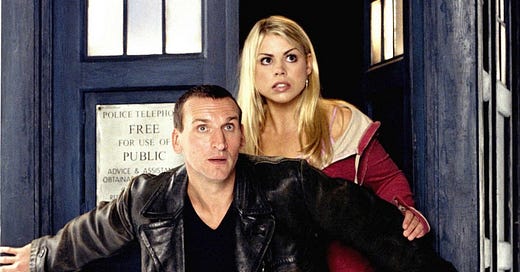




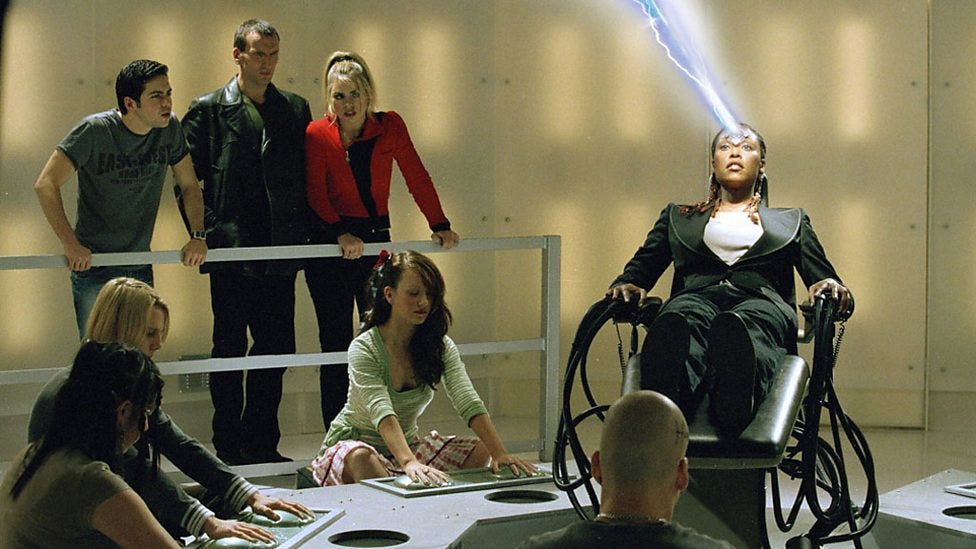
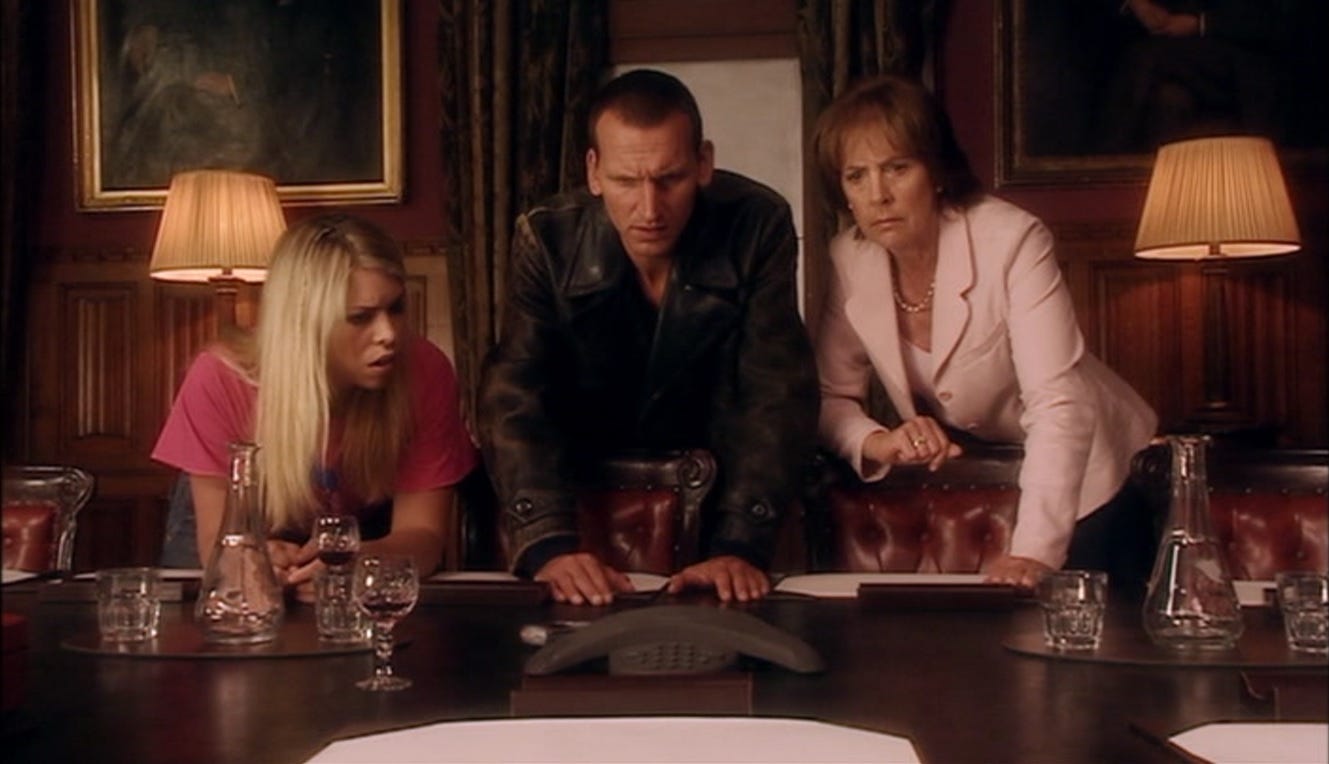
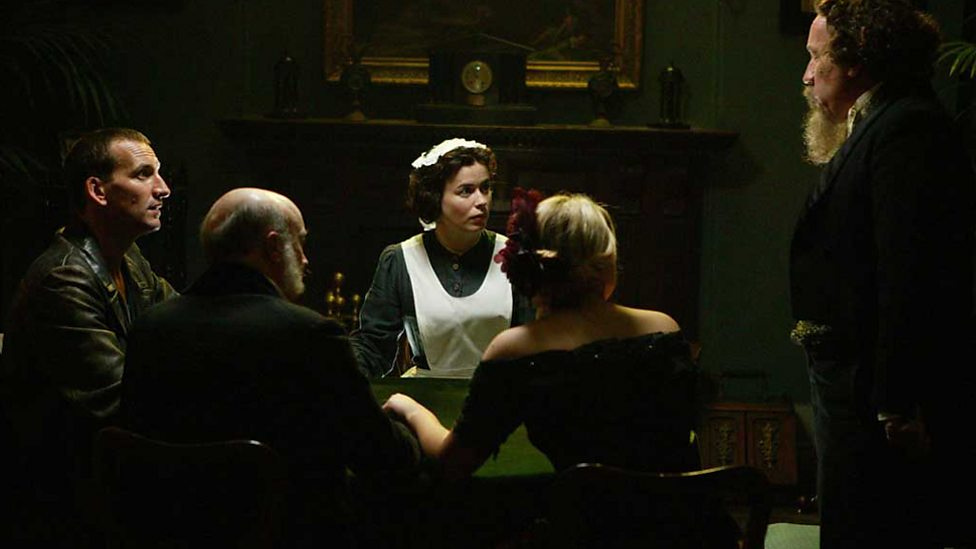

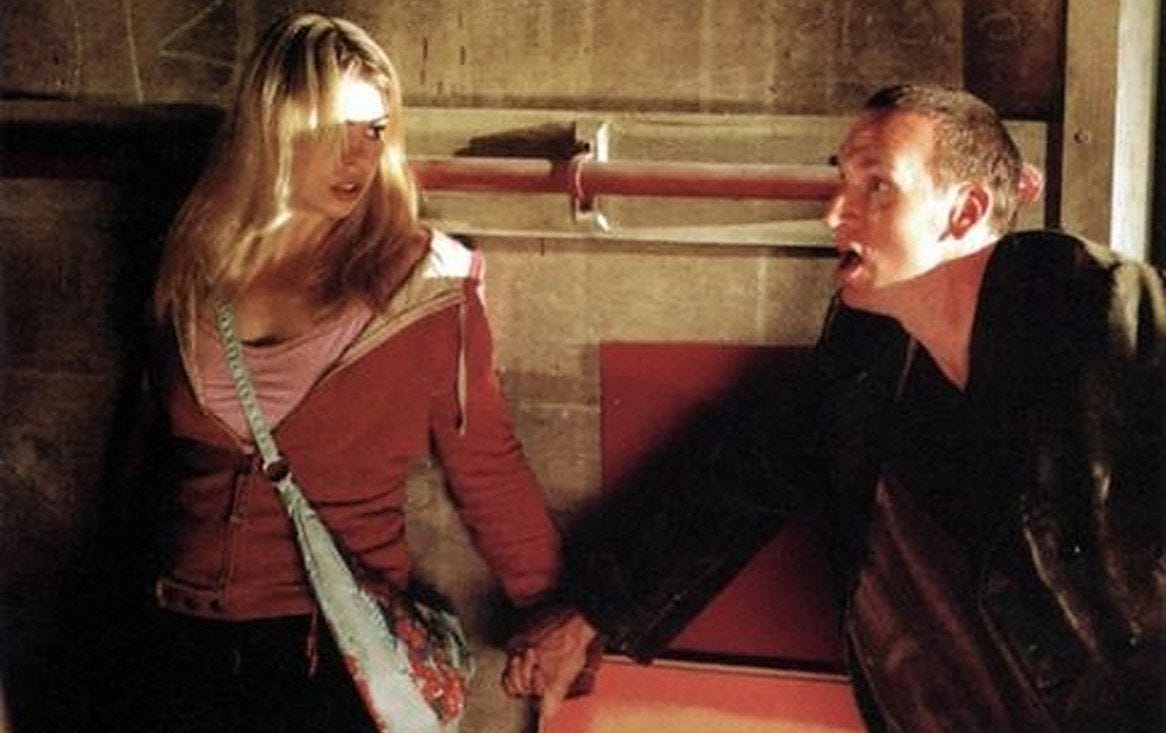
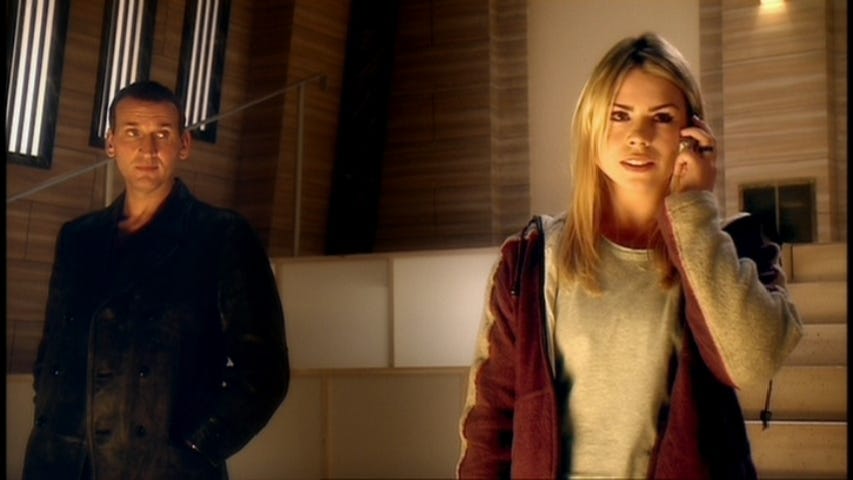
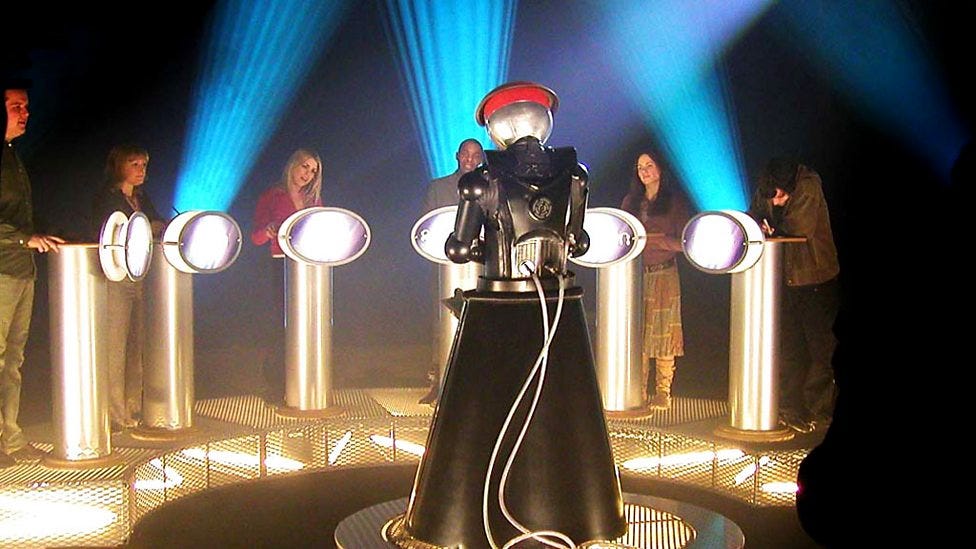
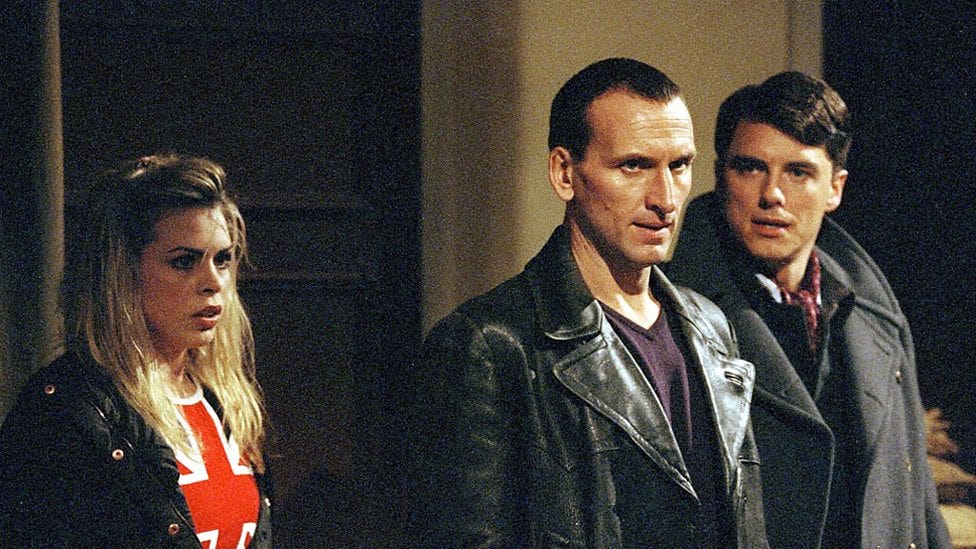
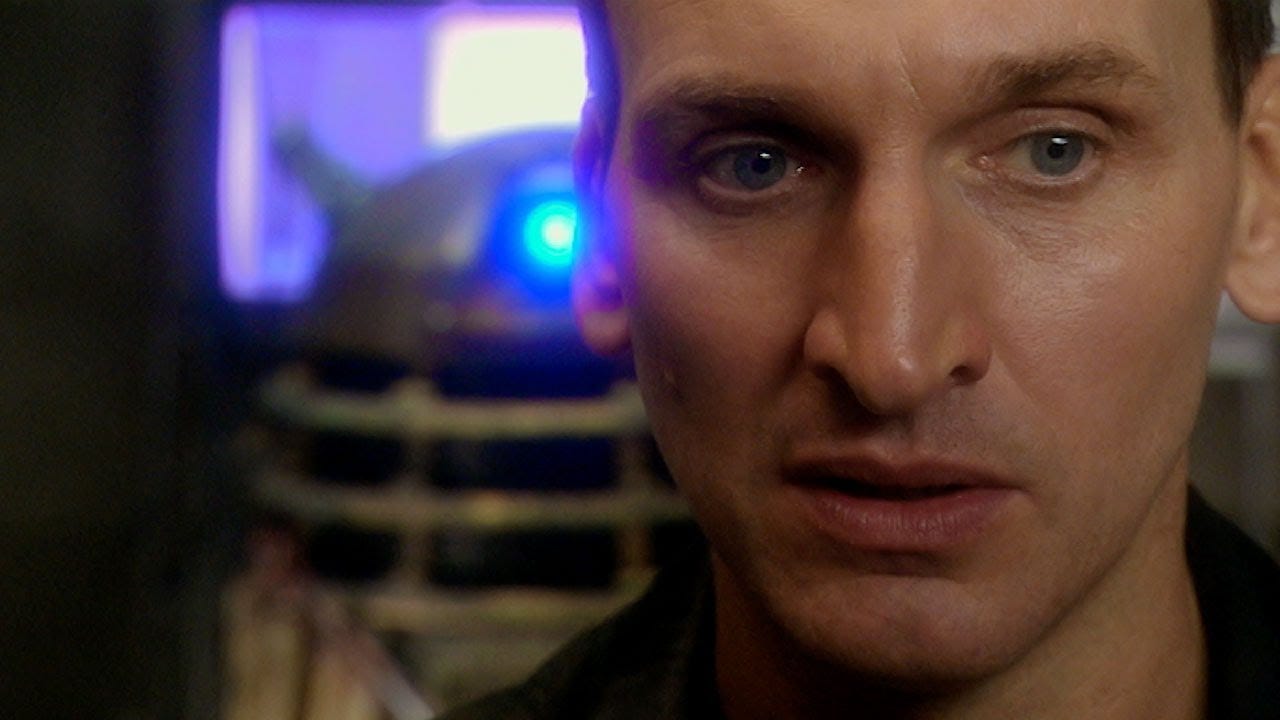
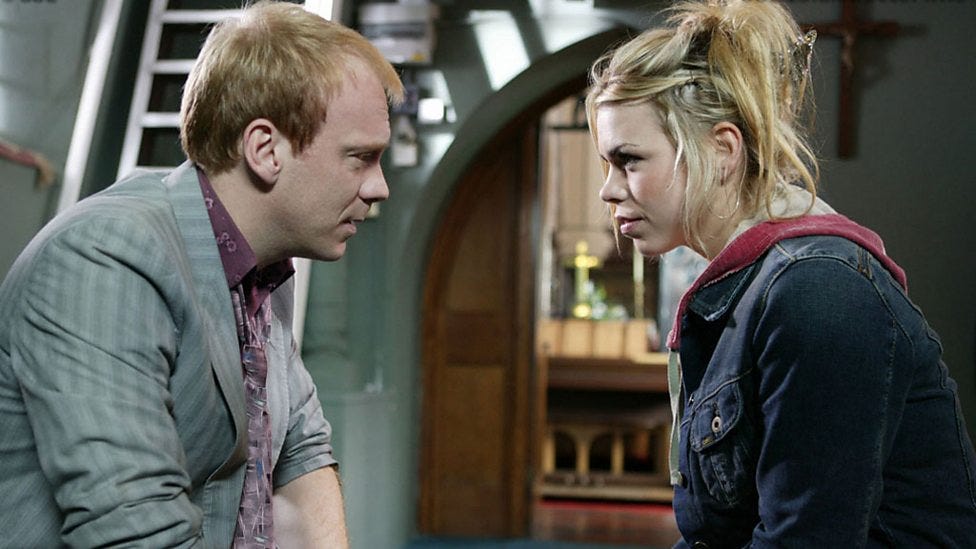
Damn, this all feels like so long ago! If I had enough time on my hands, I would definitely do a rewatch as well. As things are, I can only remember how taken I was by this first season. The character of Rose, in particular, felt so real and true.
I have to admit that my favourite thing about NuWho is the River Song arc that started so amazingly in "Silence in the Library" but the first season was indeed a very strong start.
Great article! I did a similar rewatch for the first time in ages and found The End of the World to be my easy favorite. I weirdly kinda liked The Long Game but it almost required me to close my eyes and imagine if it had an actual budget with that story.
Have you read any of the Target novelizations of the new series? The ones I've read have all been pretty fun, but the Dalek one was on a new level. Robert Shearman returned to write it but the episode makes up maybe 30% of the book. It's somehow even more upsetting as he tells these mini-stories of the lives of the victims and getting further into the Dalek's head. Well worth the read.